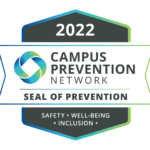Student Advocacy and Prevention Awareness
If you are in immediate danger, please call 911.
If you or someone you know has experienced sexual violence, intimate partner violence, or stalking, help is available at Student Advocacy and Prevention Awareness (SAPA) Monday to Friday from 8:30 am to 4:30 pm. All services are FREE and CONFIDENTIAL.
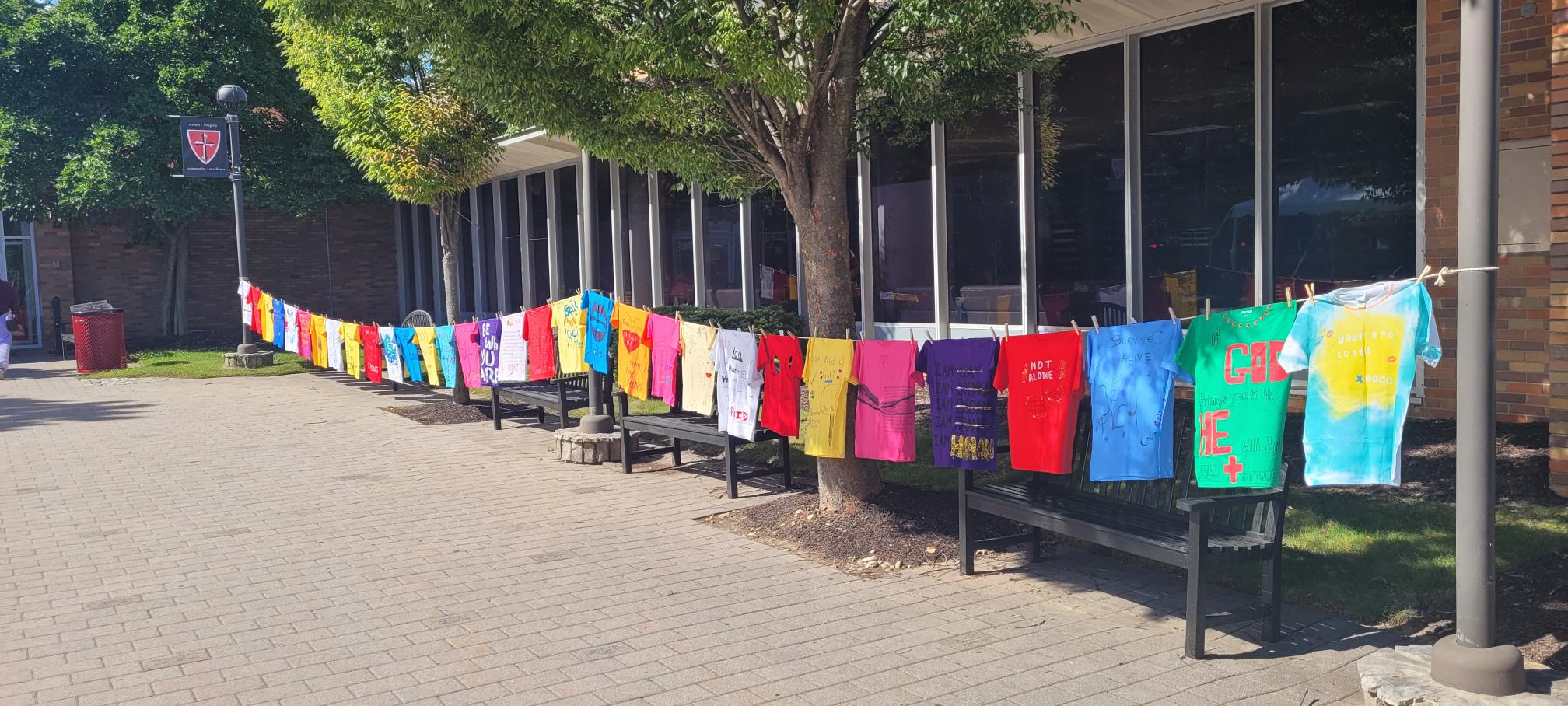
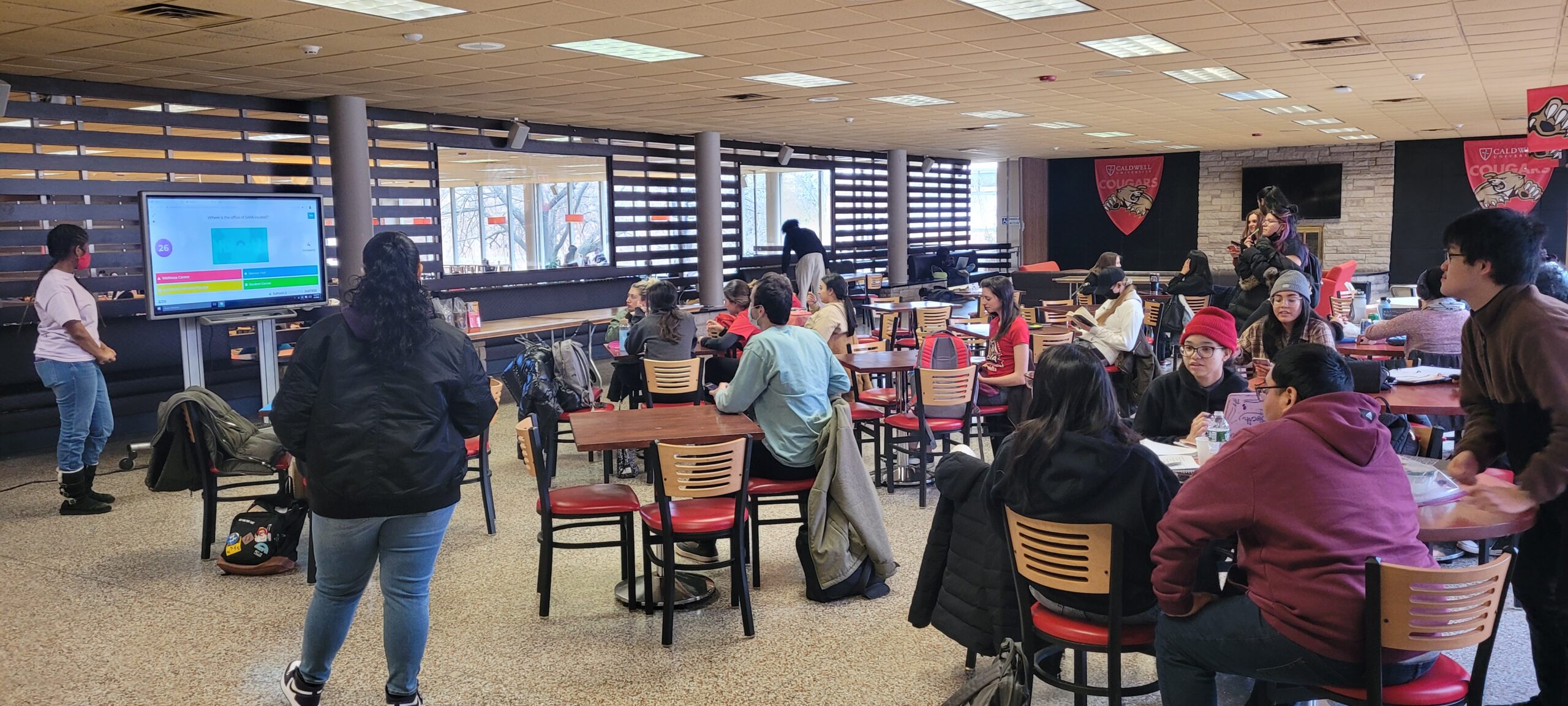
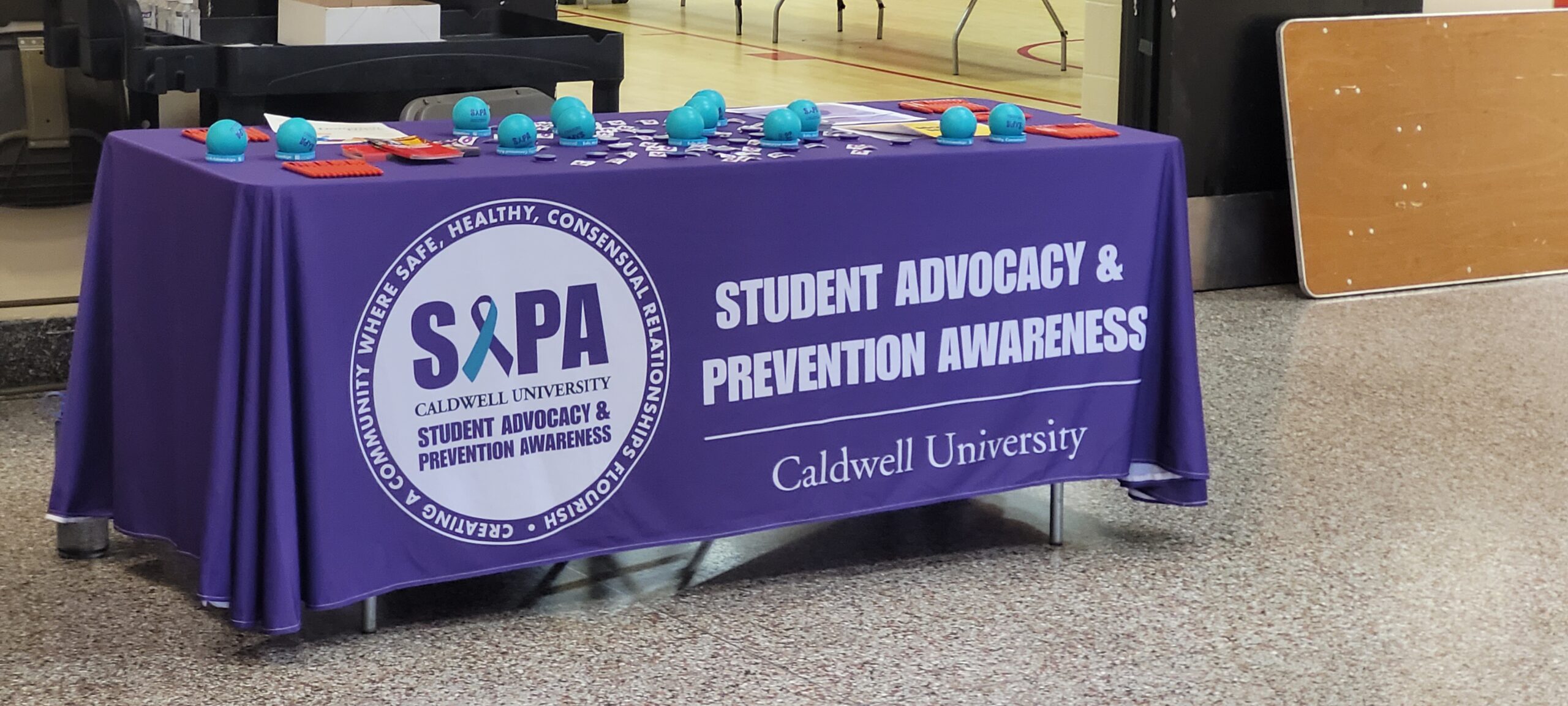
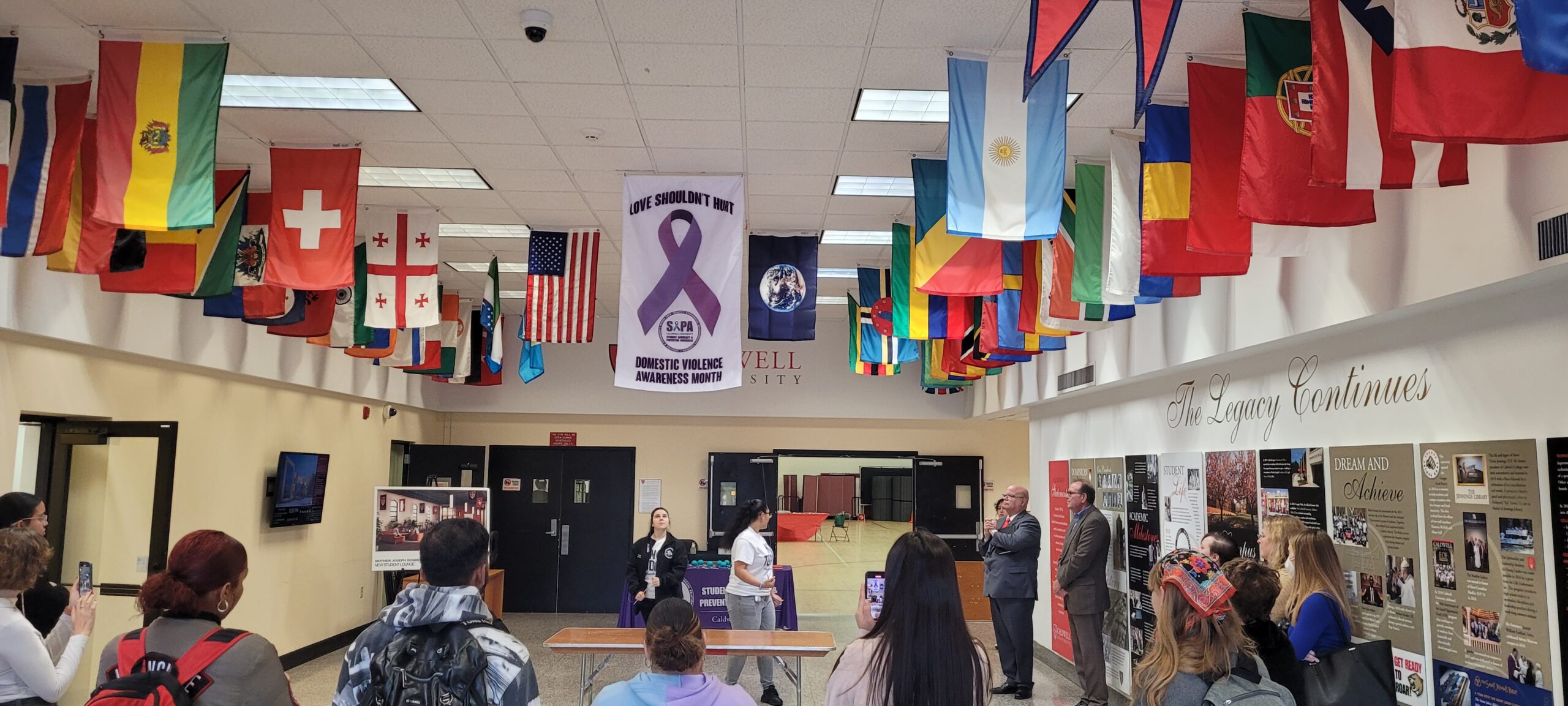
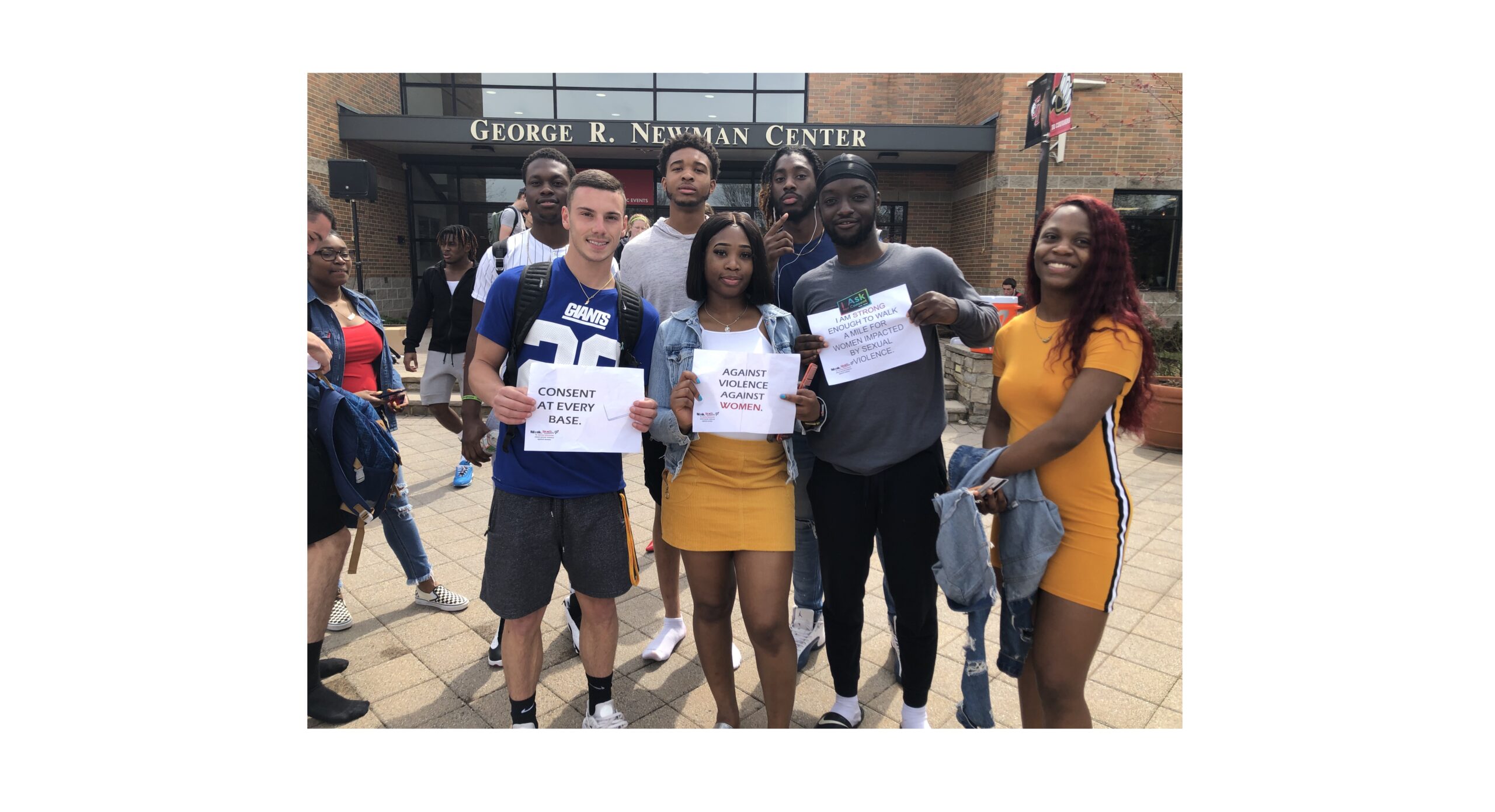
Student Advocacy and Prevention Awareness
Alumni Theatre 2nd floor
Student Life wing, Room 223
Hours: Monday – Friday: 8:30 am – 4:30 pm, and by appointment
Director, Student Advocacy and Prevention Awareness
Email: sapa@caldwell.edu
Office: 973-618-3907
File a report with the Office of Title IX
If You Need Immediate Assistance
During normal business hours (Monday-Friday, 8:30 am-4:30 pm), the following campus and community partners are available to provide assistance:
- Counseling Services
- counseling@caldwell.edu ∣ 973-618-3307
- Student Advocacy and Prevention Awareness
- 973-618-3907
- Essex County Family Justice Center
- 973-230-7229
- SAVE of Essex County
- 24-hour Hotline: 1-877-733-2273
After business hours, the following campus and community partners are available to provide assistance:
- SAVE of Essex County: 24-hour Hotline: 1-877-733-2273
- Crisis Textline: Text HOME to 741741
- NJ Hopeline: 1-855-654-6735
- National Suicide Hotline: 1-800-273-TALK(8255)If you are dealing with an emergency, please contact 911.
Mission
In the Office of Student Advocacy and Prevention Awareness, we remain fully committed to our vision of creating a community where safe, healthy, consensual relationships flourish. The SAPA office is dedicated to:
- Providing education, resources, advocacy, and counseling referrals related to sexual violence, intimate-partner violence, and stalking.
- Raising awareness on campus and in the Caldwell community.
- Serving as a confidential resource for Caldwell students, faculty, and staff.
Services
The office of Student Advocacy and Prevention Awareness provides the following services to the Caldwell community.
- Prevention or skills-based training, where SAPA uses Bystander Intervention as its framework to equip the CU community with strategies to prevent sexual and intimate-partner violence from occurring in the first place.
- Confidentiality for anyone who discloses or shares information regarding sexual or intimate-partner violence, or stalking.
- Advocacy or advisory services for survivors and co-survivors of sexual or intimate-partner violence, or stalking violence. These services include providing information on campus and community resources; crisis counseling; and education on policies, rights, and processes. (Survivors are those directly impacted; co-survivors are those who know of and want to support the person directly impacted.)
- Education for students and student groups, in the form of presentations, workshops, and training sessions on a variety of topics related to sexual and intimate-partner violence, and stalking. Please see the list below for sample topics.
- Employee training to equip faculty, staff, and administrators with education to recognize trauma experienced by survivors, as well as tools to respond to survivors in such a way that centers the survivors’ experiences, so as to build rapport.
- Awareness-Month Programming for Sexual Assault Awareness Month (April) and Domestic Violence Awareness Month (October).
- Student leadership opportunities via Peer Education — Peer Educators facilitate workshops, plan programs, organize community events and foment conversations that inspire sexual respect and healthy, consensual relationships.
- Policy review to help ensure university policies operate through a trauma-informed approach and a survivor-centered lens.
- Community engagement to inspire students, faculty, staff, and administrators to contribute to a community where safe, healthy, consensual, relationships flourish. Community engagement occurs through programming and workshops, broad-level outreach and individual conversations.
Resources
There are community agencies that provide telephone and in-person counseling; accompaniments to police stations and hospitals for evidence collection, and general advocacy for survivors of sexual and intimate-partner violence:
- Sexual Violence – SAVE of Essex County – 24-hour Hotline: 1-877-733-2273
- Intimate-Partner Violence – Essex County Family Justice Center: 973-230-7229
Outside of the Caldwell area, you can find resources local to your community here:
Counseling
Counseling Services is available to provide free and confidential short-term counseling and support to students who may be struggling with personal concerns. Their office is located in the Wellness Center on the 2nd floor of the Newman Center. You can make an appointment by reaching out to its dedicated email at counseling@caldwell.edu or by calling 973-618-3307. A staff member will return your call or email within 24 hours during its normal business hours (Monday to Friday, 8:30 A.M. to 4:30 P.M.). For further information, visit our website at https://www.caldwell.edu/counseling-center. Or follow us on Instagram: @cucounselingservices.
Education
Education is an essential component of preventing sexual and intimate-partner violence, and stalking, supporting survivors, and creating a community free of all forms of interpersonal violence. SAPA offers a multitude of educational platforms to create the cultural shift necessary to achieve its vision.
Bystander Intervention is at the core of prevention programming. SAPA uses the evidence-based program, “Bringing in the Bystander,” to educate and empower students to become prosocial bystanders. SAPA also employs a team of Peer Educators — students who engage other students as allies in an effort to transform individual, relational, communal, and societal attitudes, knowledge, and skills regarding sexual, dating, domestic, and stalking violence.
The office provides educational workshops and other training on a variety of topics related to sexual and intimate-partner violence, and stalking, including:
- Bystander Intervention
- Consent Workshop
- Masculinity and Consent (male-only and mixed gender audiences)
- Media Literacy and the Intersectionality of Media Messages with Masculinity and Femininity
- An Overview of Sexual and Intimate-Partner Violence
- Rape Culture and Victim Blaming/Shaming
- Responding to Disclosures and Providing Resources for Survivors
- Victimization: Why Some Victims Stay, Barriers Victims Face, and Your Role
- Engaging Men
- Gender, Gender Roles, Gender Constructs and Sexual Violence
For more information, including detailed descriptions about any of these topics, or to have SAPA develop a workgroup or training specifically for your group, please contact us, via email or telephone.
About the Program
The Student Advocacy and Prevention Awareness office is made possible through the Campus Program Grant secured from the Office of Violence Against Women. The program is designed to: enhance victim services; implement prevention and education programs; develop and strengthen campus security and investigation strategies in order to prevent, prosecute, and respond to sexual assault, domestic violence, dating violence and stalking on college campuses; and create coordinated responses to these crimes which may include partnerships with local criminal justice authorities and community-based victim services agencies.
